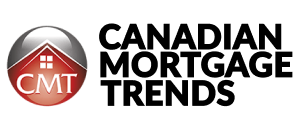Definition: A hybrid mortgage is a mortgage loan that combines elements of both fixed and variable interest rates, allowing borrowers to diversify their rate exposure within a single mortgage product.
Key Points:
- Split interest rates: Hybrid mortgages typically divide the loan into two or more segments, with a portion subject to a fixed rate and the remainder to a variable rate. Borrowers can choose how much of the mortgage to allocate to each rate type.
- Rate stability and flexibility: The fixed portion provides stability, protecting against rate hikes, while the variable portion can offer savings if rates fall.
- Single mortgage structure: Borrowers manage one mortgage with multiple rate segments, simplifying their payment schedule and account administration.
Example: With a hybrid mortgage, a homeowner might allocate 60% of their loan to a five-year fixed rate for stability, while the remaining 40% follows a variable rate, potentially reducing interest costs if rates decline. This structure can be particularly appealing to borrowers seeking both predictability and flexibility in fluctuating interest rate environments.
Last modified: November 5, 2024



